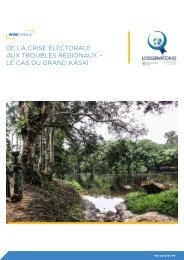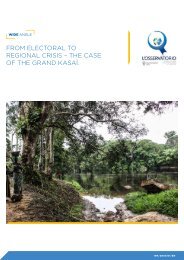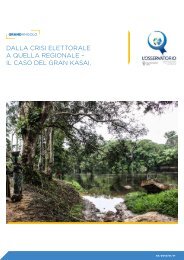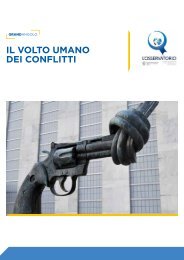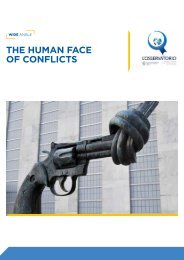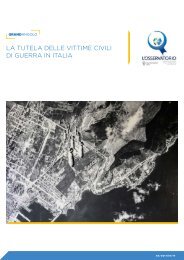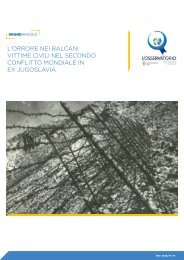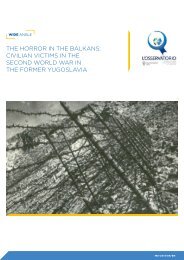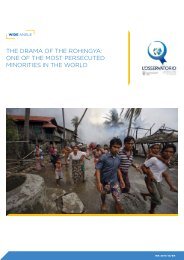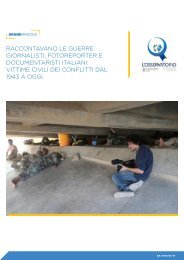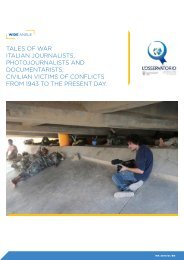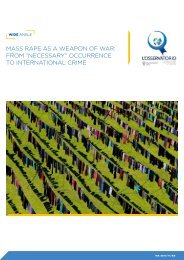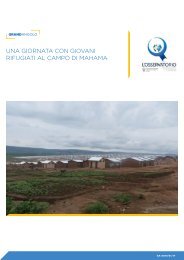The Colombian Peace Agreement (EN)
You also want an ePaper? Increase the reach of your titles
YUMPU automatically turns print PDFs into web optimized ePapers that Google loves.
<strong>The</strong> FARC are still extremely unpopular with wide sectors of the <strong>Colombian</strong> public,<br />
and the last-minute inventory of their wealth and the news of the UN-supervised destruction<br />
of 620 kilograms of explosives did not change this perception. <strong>The</strong>y were<br />
deemed by many as excessively late or extremely opportunistic moves. Some have<br />
argued this show of protagonism scared and irritated <strong>Colombian</strong>s even further, as the<br />
CD had been warning people about the dangers of “castrochavismo”, and recalling<br />
how recent Latin-American history saw the rise to power of former guerrilla leaders. 119<br />
Fear mongering and misinformation campaign from the Uribe camp played a major<br />
role: CD supporters appealed to “the hatred that a portion of <strong>Colombian</strong> society feels<br />
for the FARC, arguing that Colombia would falsely turn into a Cuba-Venezuela like<br />
state. Also, the length and complexities of the agreement, most notably the justice<br />
section […], allowed for those wanting to sabotage the effort to distort its contents,<br />
generating fear among voters”. 120<br />
Supporters of the peace deal await the definitive results of the referendum<br />
Credit: John Vizcaino. REUTERS 2016<br />
Source: De Nederlandse Publieke Omroep, http://nos.nl/artikel/2135641-colombianen-stemmen-tegen-vredesakkoordmet-farc.html<br />
President Santos is the one that has been weakened the most by this defeat. He has<br />
committed numerous mistakes whilst conducting the campaign, including staking<br />
his legacy and political future on a plebiscite he was not legally requested to convene<br />
(some are accusing him of “taking a gamble” 121 ), presenting the referendum as<br />
a choice between “yes” or war and admittedly not having a plan B in case the vote<br />
had rejected the deal. His government’s inability to fully communicate the benefits<br />
of peace to a particular sector of society probably contributed to polarisation. Additionally,<br />
“With Colombia’s economy slowing down and crime on the rise, Santos’s<br />
presidential approval rating has slumped below 30 percent in recent months”, 122 which<br />
may have transformed a plebiscite on the peace deal in a vote on the president. In a<br />
brief statement on the day of the defeat, Santos called on “all political forces” to join<br />
efforts and re-discuss the plan, forced by the vote to make space on the stage for<br />
Uribe’s initiative.<br />
30



